We took some time out to interview Ann Mazzocca, dancer/choreographer/professor at Christopher Newport University. Have a read to discover her for yourself and to see what she will bring to “The Line: Art for Social Change,” happening at the Slover Library August 21 at 3PM. While The Line is a free event, we ask that you register here in advance, as space is limited.
The Line: Who are you?
Ann: Let's see...for some reason this question is stumping me...it's so open! I am Ann English Mazzocca. I have devoted my adult life to dance and, through that, education, collaboration, performance, and advocacy for dance, performance, the arts, and, more recently, social justice.
The Line: How would you describe your work?
Ann: My individual choreographic work has sought to explore my relationship as a white American woman to the African-based, Caribbean folkloric dance forms and traditions I have devoted myself to as a dancer/performer. I often combine Haitian and Afro-Cuban folkloric vocabulary and themes within a contemporary postmodern approach to choreography, which includes improvisation, collaboration, juxtaposition, and self-reflexivity. I am inspired by the sacred traditions from which the folklore emerges, and my experiences within the folkloric and religious communities in Haiti and Cuba as well as the United States. Therefore, I also attempt to access/represent the essence of the energies and symbolic meanings held within these powerful dances.
The Line: What is the most challenging aspect of what you do?
Ann: The most challenging aspect of what I do is probably actually being able to choreograph/perform my intention and have that communicate to the audience. I realize, and I think I therefore go into a process knowing that an audience will do with one's work what they want...in a good way: they will make meaning and see narrative, etc. regardless of if I've intended that meaning and narrative or not. And in some ways I love that about dance...it's very concrete — bodies in relation to each other — but it's also so abstract. And so, I do like that there is room for interpretation, but I think sometimes I might struggle with that translation of thought/intention to choreography.
The Line: What or who inspires you?
Ann: The dances inspire me. The rhythms and songs inspire me. The traditions inspire me. The intimacy and fervor I have experienced in rural Haitian and Cuban, African-based religious practices and living inspire me. Friends within the traditions inspire me. My teachers have inspired me, especially those who have passed on (always too young it seems) such as Felix "Pupy" Insua, Abdoulaye Sylla, and Minini of Afro-Cuba de Matanzas. My family and ancestors inspire me. My students inspire me. Many contemporary and historical choreographers have and continue to inspire me. Life inspires me...though, more recently, the challenges and injustices in our contemporary society, rather than inspire, seem to be motivating me. That motivation then feeds aspirations — aspirations to open up dialogue, to acknowledge the myriad social injustices of our time and historically, and to imagine and share with others alternative possibilities.
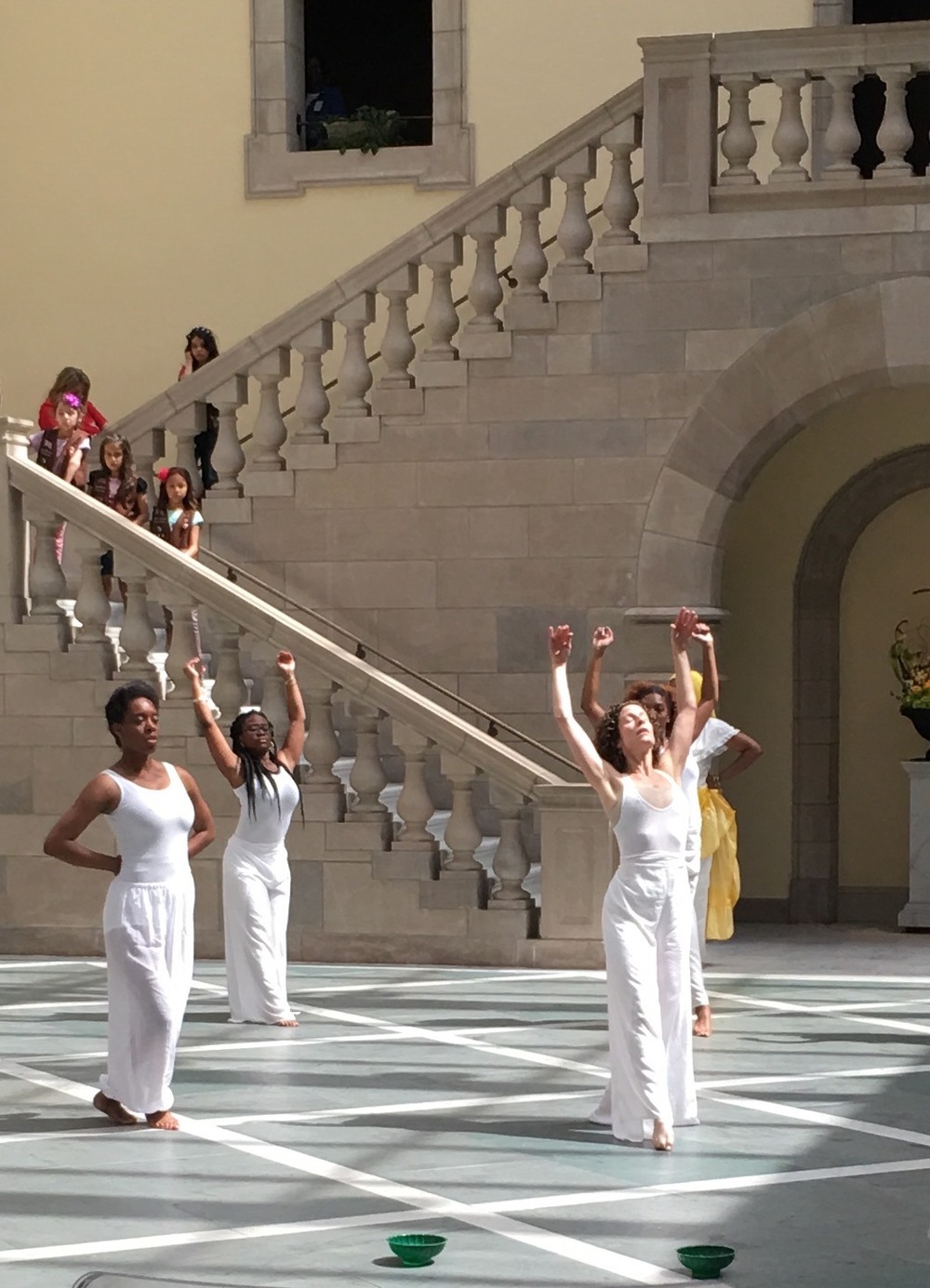
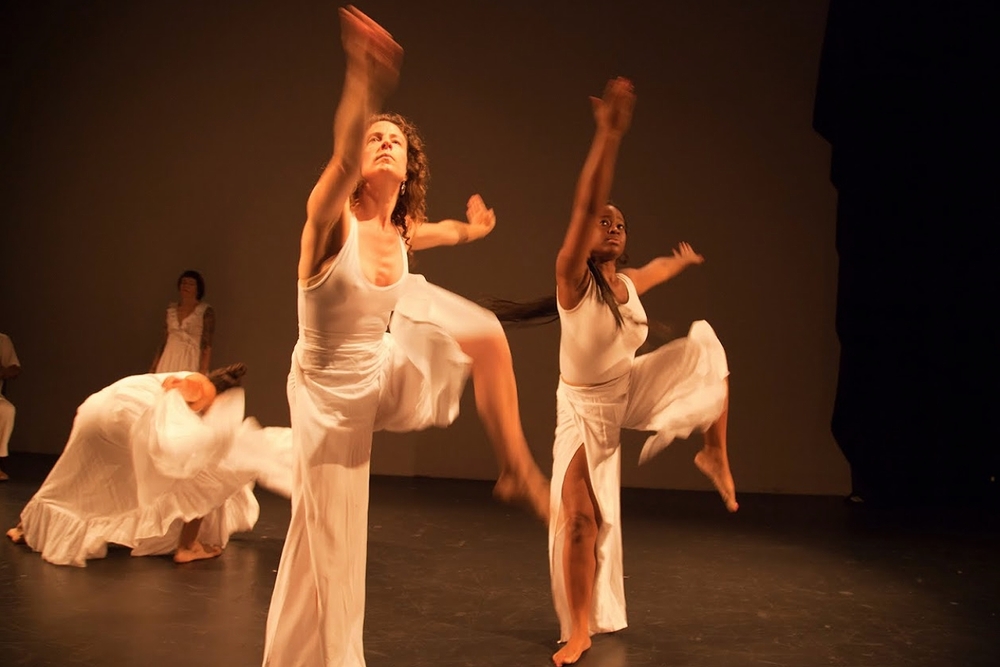
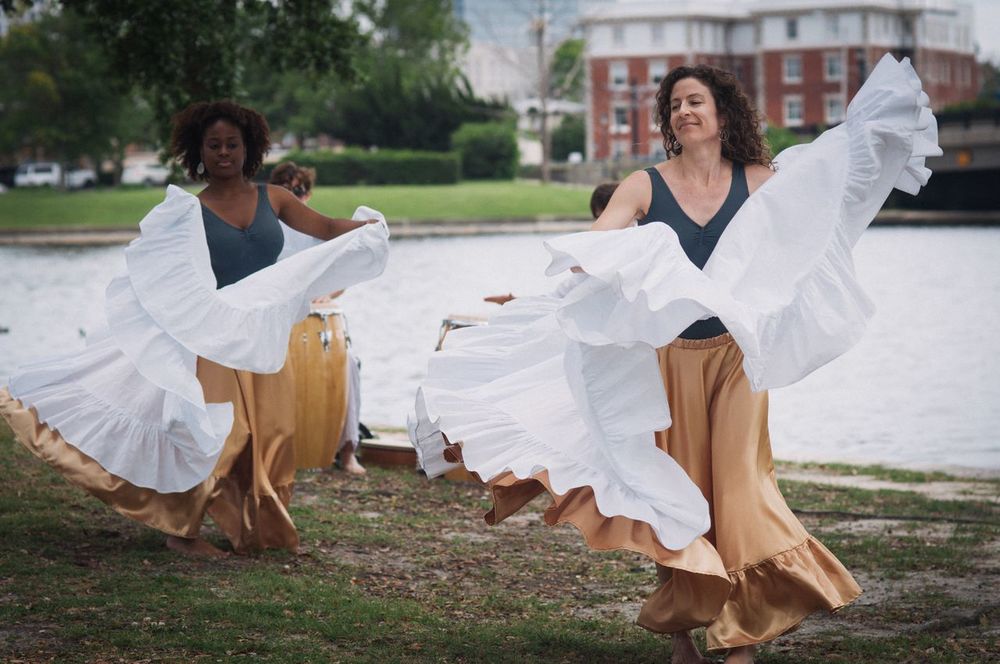
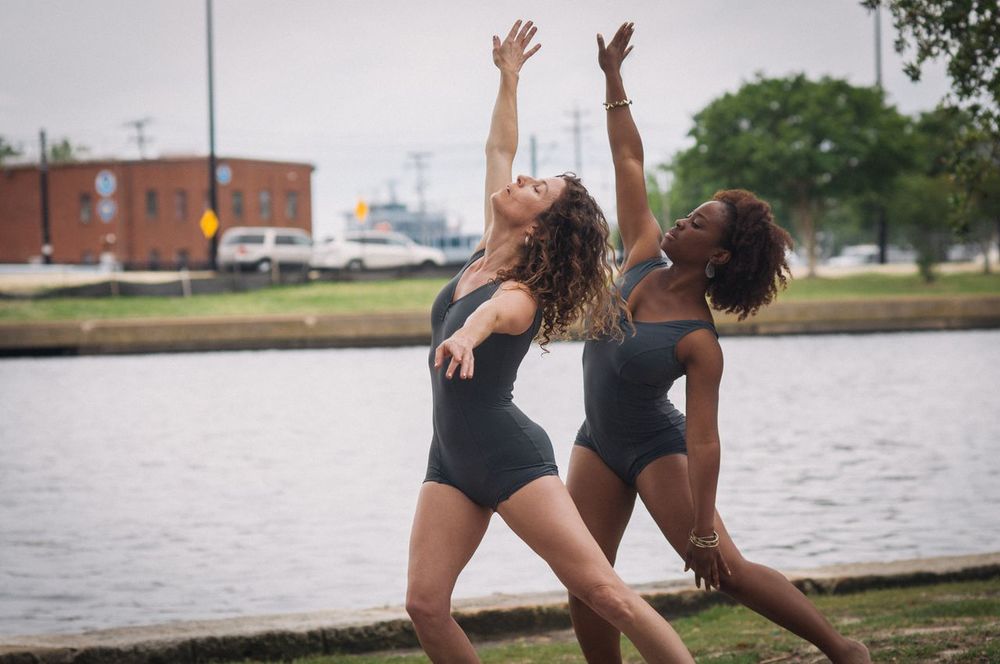
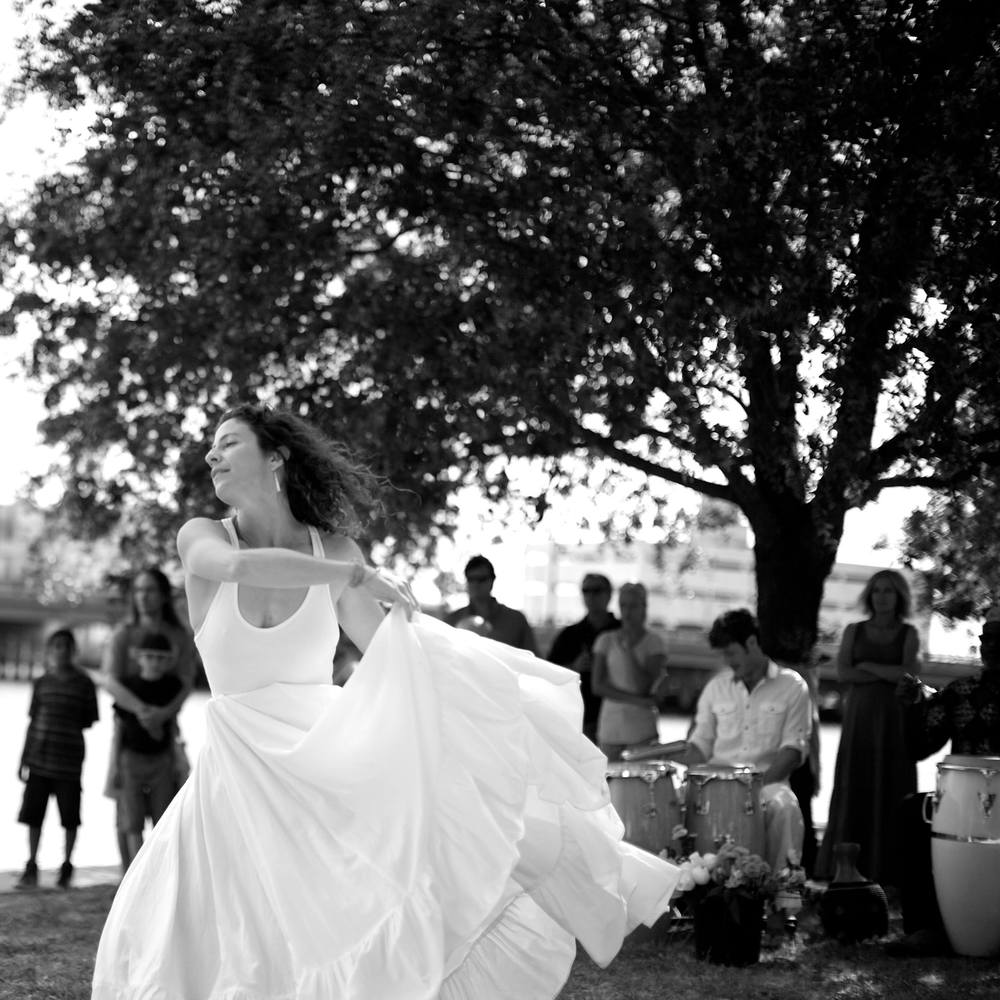
The Line: What drew you to The Line?
Ann: I was immediately on board with this project! As a dancer/choreographer/person-in-this-world, I'm acutely aware of the politics of space as well as the power, vulnerability, and significance of bodies and how that shifts based on sex, gender, race, and class. I have been repeatedly horrified, angered, and saddened by the grossly disproportionate killings of African American men, women, and children in the streets, their homes, and parks of our cities and towns by people charged with serving and protecting their communities and by the lack of accountability for individuals' negligence and misconduct. These feelings became magnified a year ago when nine prayerful people were gunned down in Charleston after opening up their community to an outsider. I continue to be baffled by some people's inability to understand and support the need to articulate the specificity that black lives matter. I also had found the communities in which I am living and working to be fairly quiet on the subject, while the communities in which I used to live (big liberal cities) were taking to the streets and social media in droves. This has now changed with the increased visibility of these crimes — especially after the killings of Alton Sterling and Philando Castile in such temporal proximity. I decided to choreograph a piece for my students at Christopher Newport University in Newport News this past year that honored the energy, bodily presence, and history of protest against racial injustice as well as the feminine, queer, and spiritual foundation at the heart of the Black Lives Matter movement through the dance of the female warrior orisha (Cuban Yoruba divinity), Oyá.
So...when you, Tommy and Kat, told me about your concept for a performance-based project based on James Baldwin's Blues for Mister Charlie, which also engaged the audience in dialogue and experiential problem-solving around race, space, and community, it aligned perfectly with what's been on my mind and where I want to be devoting more of my time.
The Line: Is there a piece of art or music that especially inspires you?
Ann: Well, I mentioned the music of the traditions I study, and I would say especially the songs — there is just such a repertoire of powerful, rhythmic, melodic songs in Vodou and La Regla de Ocha, and sometimes a particular song will really move me for a period of time. I am often inspired by performances that I see...Ron K. Brown is one of my favorite choreographers — he and his company, Evidence, are based in Brooklyn, NY. He incorporates various African diaspora dance traditions in his work, and he is a very spiritual and kind person, so there's an incredibly rich texture to his choreography, and it also just grooves. His work is moving in all the possible ways! This June, I saw a duet that he made in 1995 and originally with two men. But this performance included two women — I believe it was Annique Roberts, and I'm not sure who the other performer was (unfortunately I can't find my program!). The sound score included a lengthy speech by Dr. Martin Luther King, Jr. on the nature of inequality, everyone's relationship to those societal inequities, and the fallacy of racial superiority/inferiority. The power of the dancers individually and in relation to each other, in a very caring and sisterly kind of way, moved me to tears.
The Line: What do you hope will come from your participation in The Line?
Ann: Personally, I'm glad to continue making work that addresses race and to participate in a community forum around our local geographies of race, space, and place. And so, I hope to continue to work in this manner. In general, I hope more conversations and community actions will continue to occur and that we all continue to work towards compassion and understanding of difference — especially important during this time of facing injustices and personal fears and within the current environment of certain divisive and inflammatory rhetoric.
Tommy Coleman and Kat Martin are Resident Theatre Artists in Virginia Stage Company's Education and Community Engagement Department. Tommy is also the Director of VSC's Urban Theatre Project, while Kat is also VSC's Assistant Director and Resident Dramaturg.


